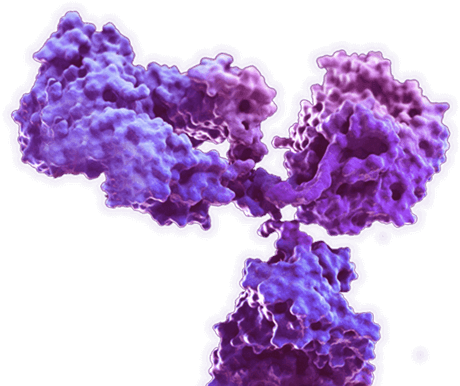AibGenesis™ Mouse Anti-Arabidopsis AT4G22250 Antibody (CBMOAB-0104FYC)
Cat: CBMOAB-0104FYC

Certificate of Analysis Lookup
To download a Certificate of Analysis, please enter a lot number in the search box below. Note: Certificate of Analysis not available for kit components.
Lot Number
To download a Certificate of Analysis, please enter a lot number in the search box below. Note: Certificate of Analysis not available for kit components.
Lot Number
| Size: | |
| Conjugate: | |
| Inquiry |
- Specifications
- Application Information
- Target
- Reference
Specifications
| Host species | Mouse (Mus musculus) |
| Species Reactivity | A. thaliana (Arabidopsis thaliana) |
| Clone | MO0104FC |
| Specificity | This antibody binds to Arabidopsis AT4G22250. |
| Format | Liquid or Lyophilized |
| Storage | Store at 4°C: short-term (1-2weeks) Store at -20°C: long-term and future use |
| Purity | > 90% was determined by SDS-PAGE |
| Purification | Purified with Protein A or G affinity chromatography |
Application Information
| Application | WB, ELISA |
| Application Notes | ELISA: 1:1000-1:3000 Other applications are to be developed. The optimal dilution should be determined by the end user. |
Target
| Product Overview | Mouse Anti-Arabidopsis AT4G22250 Antibody is a mouse antibody against AT4G22250. It can be used for AT4G22250 detection in Western Blot, Enzyme-Linked Immunosorbent Assay. |
| Alternative Names | Putative uncharacterized protein At4g22250; Putative uncharacterized protein At4g22250/T10I14_80; RING/U-box domain-containing protein; At4g22250 At4g22250/T10I14_80 |
| UniProt ID | Q8GXD8 |
| Protein Refseq | The length of the protein is 214 amino acids long. The sequence is show below: MMSELDLGTSQRMTETHRTTTTFLDLLRRQMSGHDLTRRKRTLKERLRFKCIGCCGPTWNLRLTNNTTLHSPTSRDDEIEELQIETGLVLESDHGSGTGMNLATALEAERYNRGESTEAEADMTPRRVSLMRLLEETAEKIVDDDGKETEILTASIGTLTGNDSVCCVCMGRKKGAAFIPCGHTFCRVCSRELWLNRGSCPLCNRPIIEILDIF. |
Reference
| Reference | 1. Kamata, N., & Komeda, Y. (2008). An inversion identified in acl1-1 mutant functions as an enhancer of the acl1-1 phenotype. Genes & genetic systems, 83(4), 293-300. 2. Luo, Q., Wei, W., Yang, Y. Y., Wu, C. J., Chen, J. Y., Lu, W. J., ... & Shan, W. (2023). E3 ligase MaNIP1 degradation of NON-YELLOW COLORING1 at high temperature inhibits banana degreening. Plant Physiology, kiad096. |
For Research Use Only | Not For Clinical Use.
Online Inquiry


